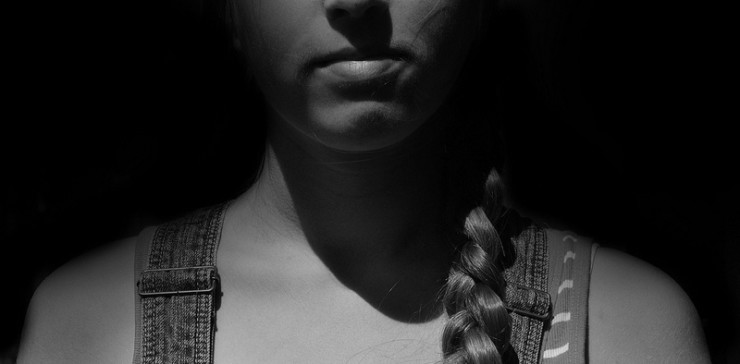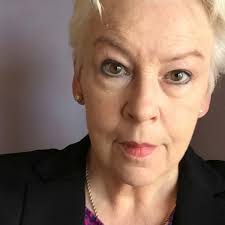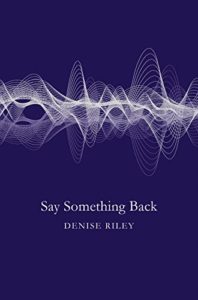
It was 15 years ago that I first heard an expression that struck me as almost uncommonly rude. Little did I know how commonly rude it would become.
I was sitting in a conference room in a northern suburb of Chicago, called in as a consultant to help plan a company conference that management hoped would be a game changer. My role at the planning meeting was to listen closely, take notes, and gather information for what would be several speeches at the meeting.
About 10 people were clustered around a table, helping to plan the conference. They were talking about each day’s agenda, outside speakers, and the reasons why this conference was so important. After the executive with the highest title talked about what his hopes for the meeting were, one manager expressed her own hopes, beginning her words with “And the other thing is.”
That expression did two things. First, it dampened any other opinions. She was implying there were only two things here—the boss’s thoughts and her own. Second, it told me that she hadn’t really been listening, only looking for the opportunity to express her own opinion.
It’s unfortunate that it and its variation “And another thing,” became a common expression used in general conversation.
British poet Denise Riley examines the idea of communication in her latest collection of 45 poems, Say Something Back. She considers communication from the perspectives of both talking and listening; communication with the world around us; communication through stories, lyrics, and songs; communication from what we see and read; and even communication while being alone. The poems are tied together by a central theme of maternal grief. Grief comes from loss, and loss can change everything, including not only how we respond to the world around us but also how we communicate with that world and understand what the world is trying to say to us.
I can manage being alone,
can pace out convivial hope
across my managing ground.
Someone might call, later.
What do the dead make of us
that we’d flay ourselves trying
to hear them though they may
sign at such close loneliness.
I would catch, not my echo,
but their guarantee that this
bright flat blue is a mouth
of the world speaking back.
There is no depth to that blue.
It won’t ‘bring the principle
of darkness with it’, but hums
in repose, as radiant static.
Her poems display a sharpness and a crispness of language, perhaps not surprising for someone who has not written not only several poetry collections but also several books about language and words. (The collection even includes a poem entitled “And another thing,” which both is and isn’t about that expression I have so much trouble with.)

Denise Riley
She includes short poems of seven lines and longer poems; one long poem comprises 20 smaller ones. Her range of subject and metaphor is impressive—seasons, nature, people, trees, Greek myth, fables, and geography are only a few she turns her eye on, with that theme of grief as a backdrop.
Riley has published several previous collections of poetry, including Marxism for Infants (1977), Dry Air (1985), Mop Mop Georgette: New and Selected Poems (1993), Stair Spirit (1992), Selected Poems (2000), and a long essay that combines prose and poetry, Time Lived, Without Its Flow (2012). She is also the author of War in the Nursery: Theories of the Child and Mother (1983); The Words of Selves (2000); Am I That Name: Feminism and the Category of Women in History (2003); and Impersonal Passion: Language as Affect (2005). She is currently a professor of poetry and the history of ideas at the University of East Anglia.
Say Something Back was nominated for the Forward Prize for best poetry collection in 2016. It’s a collection filled with poems of carefully considered subject and theme, almost a kind of plea to listen to and hear each other, expressed with a precision and vividness of language that is remarkable.
And the other thing is not …
Photo by Sagisen, Creative Commons, via Flickr. Post by Glynn Young, author of the novels Dancing Priest and A Light Shining, and Poetry at Work.
__________________________

“I require all our incoming poetry students—in the MFA I direct—to buy and read this book.”
—Jeanetta Calhoun Mish
- Longfellow’s “Paul Revere’s Ride”: Creating a National Legend - April 17, 2025
- Poets and Poems: Katie Kalisz and “Flu Season” - April 15, 2025
- Poets and Poems: Michelle Ortega and “When You Ask Me, Why Paris?” - April 10, 2025

Bethany R. says
Powerful line about that depthless blue that,
“…hums
in repose, as radiant static.”
I like what you say, Glynn, about how grief and loss change how we listen and talk to the world. It’s a relandscpaing.
Tammy says
I have never stopped and thought of that saying “and the other thing is” or “and another thing” was so rude. You made me stop and think on those sayings. I say them regularly and never really thought that is was such a thought stopping saying.
The poem you shared is so deep. You can feel it so deep within the soul. Thank you for sharing it.